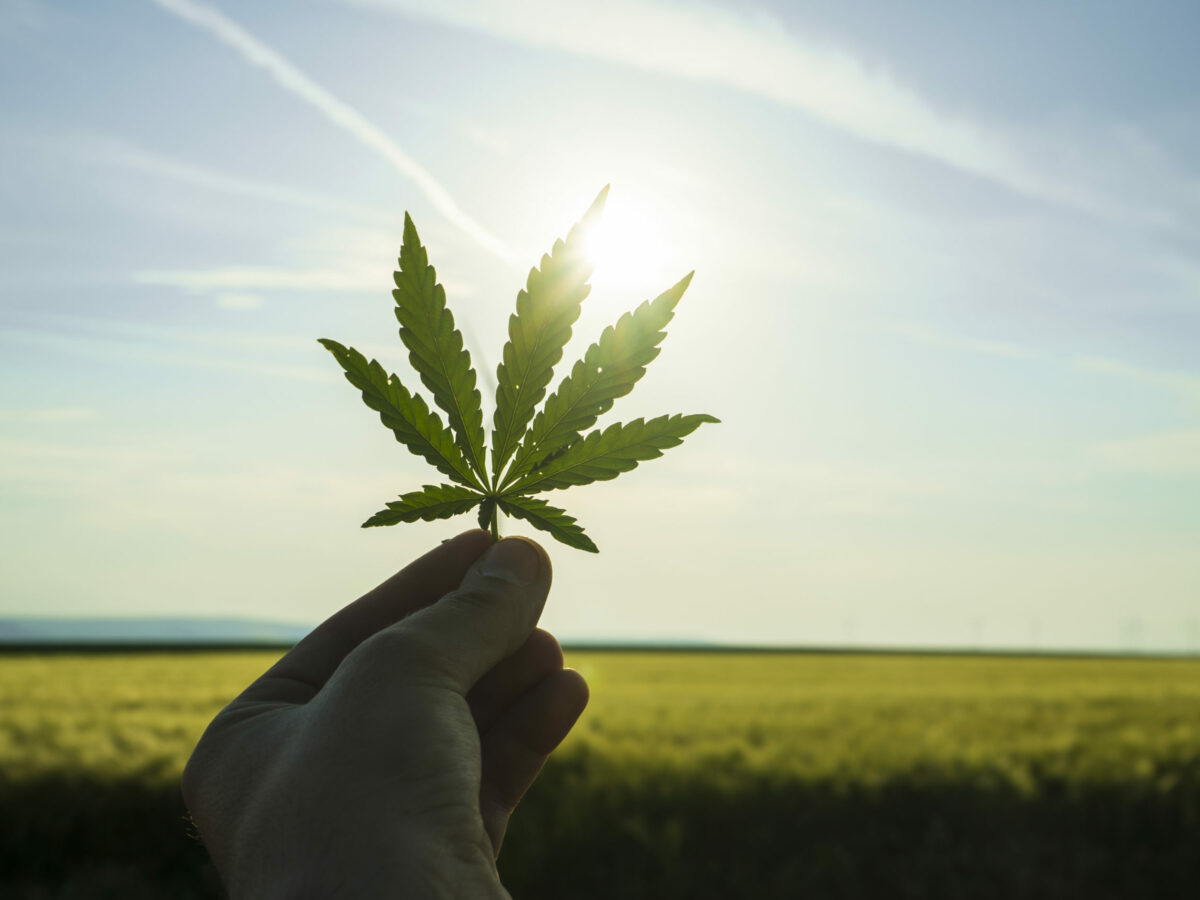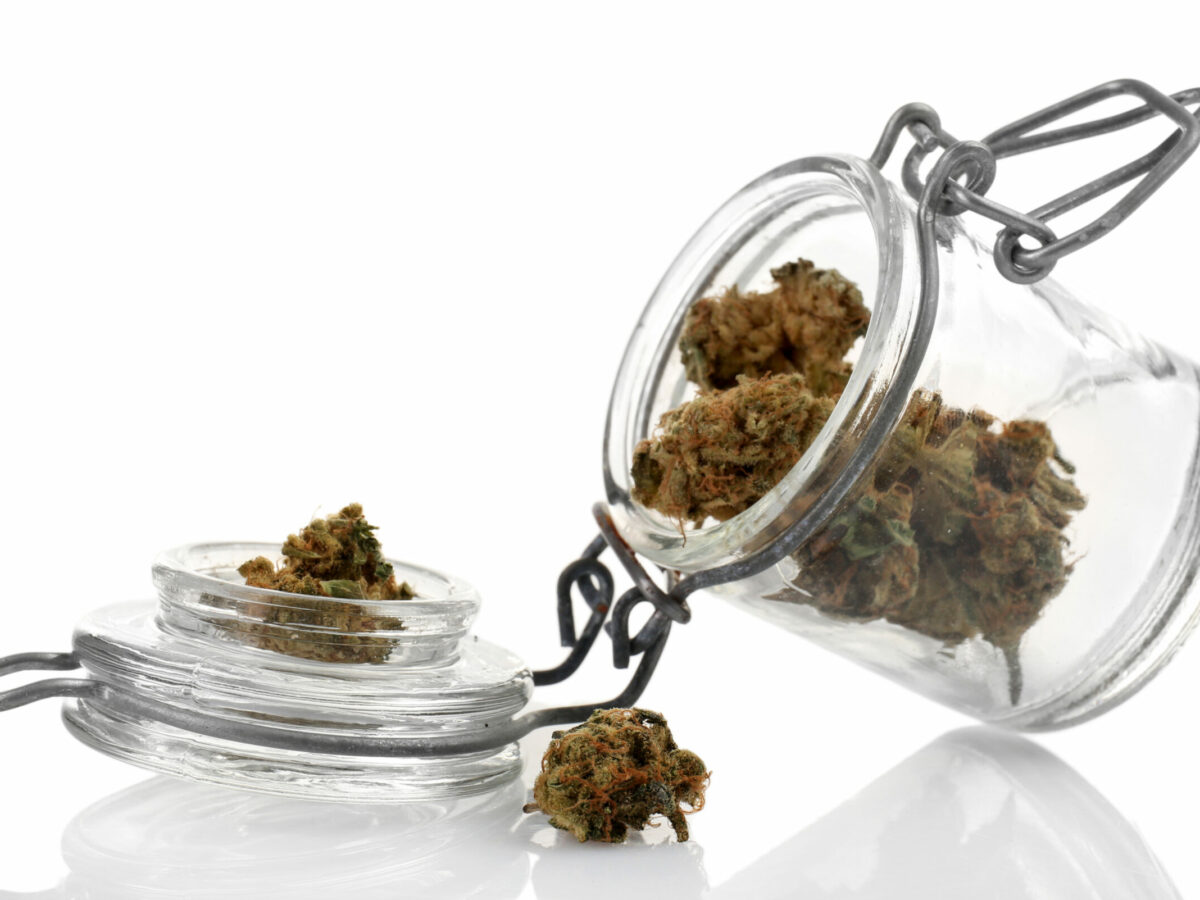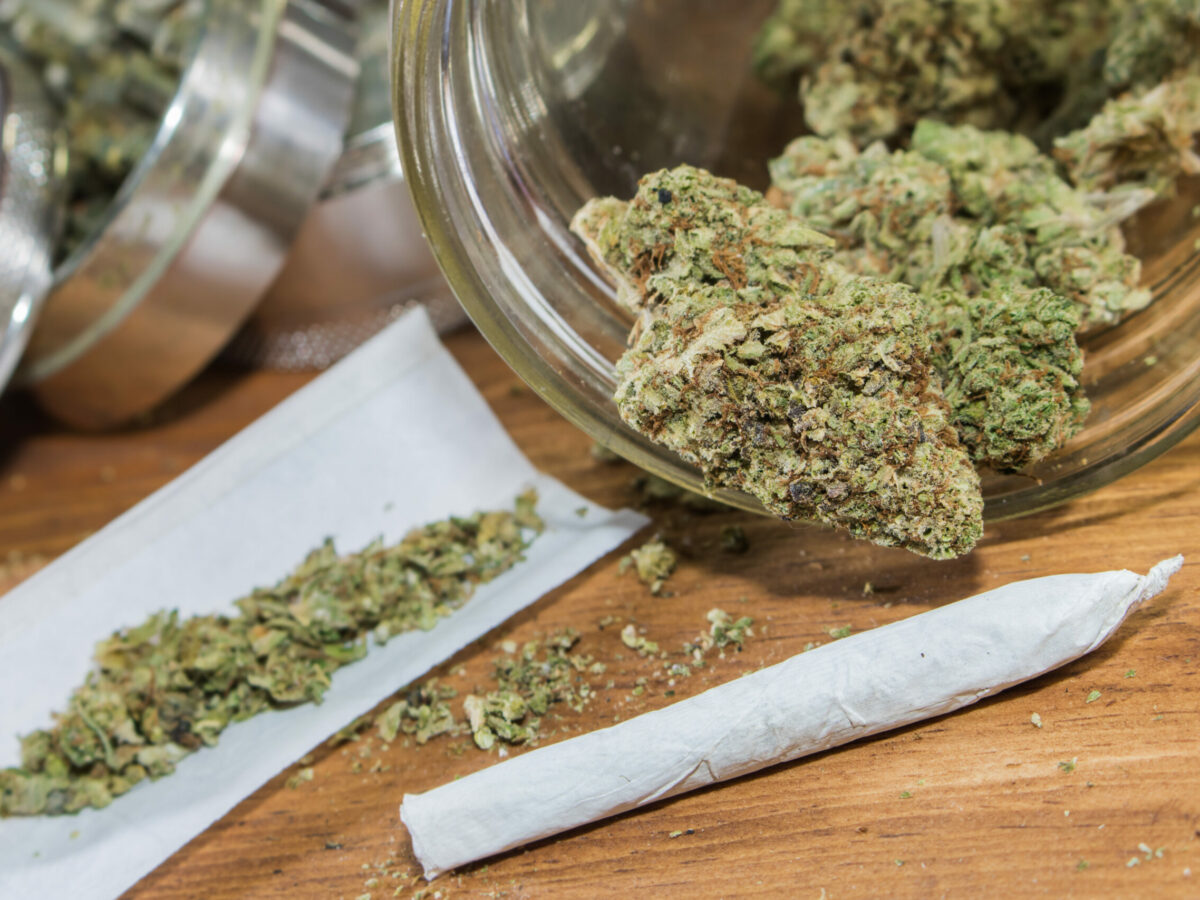The D.C. Council will consider an emergency measure next week that would give local authorities more power to crack down on the dozens of businesses that sell cannabis without a medical permit in the District — also known as the gray market.
Council Chairman Phil Mendelson on Thursday requested to add the emergency bill to the council’s agenda for an upcoming legislative meeting scheduled on Tuesday, Nov. 2.
The amendment’s purpose, according to a memo published on Mendelson’s website, is to address a sudden drop in registrations for the District’s medical cannabis program, which is run by D.C.’s Alcoholic Beverage Regulation Administration (ABRA).
In the memo, Mendelson said the end of a pandemic provision that extended the validity of D.C. medical cannabis cards has led to ABRA patient sign-ups decreasing from 12,000 to roughly 5,500 “in a very short time period.” He added that the expiration of thousands of cannabis cards may be pushing patients to purchase weed at unlicensed weed shops.
“Given the burdens associated with patient registration, and a thriving illegal cannabis market in the District, many of these patients may be driven to purchase illicit cannabis,” the memo said.
The bill would grant patients whose cannabis cards expired no earlier than March 2020 a three-month grace period to keep buying pot from medical dispensaries, and to renew their cards for two years. That grace period would expire on Jan 31, 2022.
But Mendelson’s proposal goes beyond just easing restrictions on patients and the medical industry: It also calls for more aggressive enforcement against the gray market “to respond to the threats posed by illegal cannabis storefront and delivery services.”
Under the proposed law, D.C. could issue heavy fines to cannabis shops, seal their premises and revoke their basic business licenses. Those provisions would apply to any business that sells, purchases or exchanges weed without an ABRA-issued medical cannabis permit.
Unlicensed shops would receive a $30,000 fine for a first violation, and their premises could then be sealed by D.C. police for up to three days. From that point, shop owners would have two weeks to submit a “remediation plan” to the Department of Consumer and Regulatory Affairs (DCRA), outlining how they plan to prevent future violations. If they fail to submit a remediation plan or if the plan is considered inadequate, officials could choose to revoke their basic operating license. After that, fines would double.
And enforcement wouldn’t stop there: the bill would even authorize the District to issue civil penalties to the landlords of businesses that sell pot without a permit. Landlords would receive an initial warning, followed by a $30,000 fine for any subsequent violations. They too would need to write up a remediation plan or face losing their operating license.
Mendelson’s push for stricter enforcement could deal a hard blow to the gray market just weeks before a landmark council hearing on a bill to legalize recreational pot introduced last March by the chairman himself. It also comes just weeks after the U.S. Senate advanced a spending package that would lift the ban on recreational weed sales in the District.
On Friday, many cannabis advocates and gray market shop owners said they were caught flat-footed by Mendelson’s bill and questioned the need to ramp up enforcement when D.C. could be on the verge of legalizing recreational sales.
Rachel Donlan, an activist with DC Marijuana Justice (DCMJ), called Mendelson’s bill a “ploy” by the council to clear the way for major cannabis corporations to start taking over D.C.’s forthcoming recreational industry before it is finally legalized.
“To burn everyone that’s been established so that there is no competition makes it profitable for monopolies to start taking shape,” Donlan told The Outlaw Report. “They will open the door for themselves and close it behind them for everyone else if we let them have their way.”
She said a better way to shield D.C.’s medical cannabis industry from gray market competition would be to lift taxes on medical patients instead of increasing enforcement against unpermitted businesses.
“There is no reason to close down established cannabis businesses while we are in the process of establishing cannabis businesses,” Donlan said.
Medical cannabis operators have in recent weeks upped the pressure on D.C. officials to lift restrictions on their industry amid a plunge in medical weed sales.
On October 15, Phyto, a cultivation center located in Ward 7, sent a letter to ABRA’s board urging officials to nix the requirement for doctors to register in order to prescribe cannabis, and to get rid of the patient registration requirement altogether. Citing a 40% drop in dispensary sales since September, the letter noted that the company was “gravely concerned for the future of the medical market if ABRA and the city council do not take immediate action.”

Phyto also raised concerns about the lack of testing for cannabis products on D.C.’s gray market: “This is a public safety crisis with tens of thousands of cannabis users purchasing product that has not had to pass any kind of safety or quality standards testing.”
D.C.’s medical operators currently don’t have access to a testing lab, though ABRA is in the process of approving two new permits for testing facilities. The letter also bemoaned that D.C. officials weren’t doing more to rein in the gray market.
“These operators exist with little fear of enforcement and no barriers to entry for those looking to purchase cannabis products and pose a safety threat to consumers having trouble distinguishing between licensed and unlicensed dispensaries,” it noted.
D.C. voters passed a ballot measure to legalize cannabis back in 2014, but a Congressional budget rider has since blocked local officials from launching a regulated market for adult-use pot. In that strange legal limbo, unlicensed weed shops have flourished across the District, creating significant competition for D.C.’s licensed medical cannabis dispensaries and cultivators.
Gray-market businesses take advantage of a loophole in local law to “gift” cannabis with the purchase of a variety of legal goods like t-shirts or potted plants. One popular weed delivery service takes the gimmick even further by gifting cannabis along with the purchase of a short “motivational speech.”
D.C. police routinely raids unpermitted cannabis shops, confiscating merchandise and issuing criminal charges to employees. But the charges are usually dismissed and businesses often stay open despite the raids, though they are sometimes forced to relocate.
Lisa Scott, President of the D.C. Cannabis Business Association, which represents D.C. entrepreneurs interested in obtaining a cannabis permit, said she’s long wondered what would happen to the gray market once recreational sales were authorized.
“Now of course we know what’s going to happen,” she said.
Until now, Scott said, police mostly busted unpermitted cannabis businesses if they received a complaint about them, but Mendelson’s bill would change that.
“This means [police] are going to be proactive and look for them,” she said. “And they’re all over the city.”
She said some gray market business owners have already started organizing to push back on Mendelson’s bill, though she wasn’t sure what kind of legal standing they would have, or how they could meet without the risk of alerting police to their activities.
“I just don’t know how to fight it,” she said.


